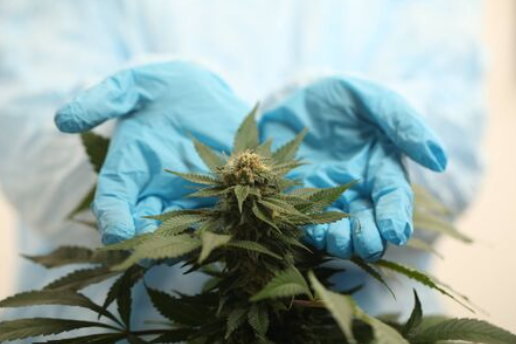The cannabis plant has been around for hundreds of years. It’s believed to have originated in Central Asia but has expanded its reach to a world scale over time. People worldwide consume cannabis, and their reasoning is essentially the same: it makes them feel better. In addition, many tend to buy grape ape feminized weed seeds for indoor cultivation to extract the therapeutic compounds from cannabis
We know that humans have cannabinoid receptors housed inside the body that can bind with cannabinoids found within the plant to supply therapeutic benefits for a spread of ailments. Cannabinoid receptors are present in humans before birth. Therefore, the compounds themselves are even found during a mother’s breast milk. Medical cannabis gains merit once you consider our bodies are naturally tuned to interact with cannabinoids, even more so once you acknowledge the growing evidence of advantages to cannabis consumption.
Table of Contents
Cannabis & Digestion
stomachIt is not any secret – experiencing “the munchies” is among the foremost obvious cannabis clichés. Despite the silly connotation, studies suggest that the endocannabinoid system helps modulate appetite. This is often especially interesting for the treatment of eating disorders. A study published within the International Journal of Eating Disorders suggests that cannabinoids may effectively treat anorexia.
Weeds are also famously used to reduce the emotions of nausea, but studies suggest it could also have various digestive benefits. Medical cannabis could play a task during several digestion-related health conditions, including:
- Crohn’s Disease
- Obesity
- Diabetes
Medical Cannabis For Pain Management
Back pain chronic pain is one of the foremost common ailments that doctors prescribe medical cannabis. A recent survey published within the Spine Journal found that 1 out of 5 patients at a Colorado spine center used cannabis to manage their pain. Of those, nearly 90% said it greatly or moderately relieved their pain.
The spine clinic study was merely a survey, which suggests more research will be necessary for the potential role of cannabis in treating back pain. Thereupon said, many people will tell you it helps manage pain, and science is starting to back their claims. Studies suggest medical cannabis could offer relief for various sorts of pain, including the following:
- Chronic Pain
- Neuropathic Pain
Cannabis & Psychological State
A common mental misconception of cannabis is that it has detrimental effects on the psychological state. It’s possible that prime doses of THC could trigger anxiety in some patients. A few believe it could expedite the onset of predisposed personality disorders, but this has yet to be proven by any reputable studies.
The recent trend within the psychological state field has been to research our relationship with cannabis. In turn, studies have linked cannabinoids to a variety of psychological state concerns. The research catalog remains growing, but a couple of psychological state conditions that cannabis might be beneficial are as follows:
- Alcoholism
- Opiate Withdrawal
- Depression
- Phobias
- Schizophrenia
Your Brain On Cannabis
Cannabis being linked to psychological state, cannabinoid receptor activity within the brain before birth suggests that the compounds might be playing a task in brain development. Cannabis has been linked to creating the latest neurons within the brain, or neurogenesis, and overall brain plasticity. Additionally to its role in brain development, medical cannabis is believed to possess neuroprotective properties that help treat the following conditions:
- Alzheimer’s Disease
- Parkinson’s Disease
- Oxygen Deficits
- Migraines
Medical Cannabis For Cancer
One of the foremost intriguing potential applications for medical cannabis in cancer treatment. It’s long been prescribed to counter the side effects of chemotherapy. Still, oncologists across the planet are performing trials to determine whether cannabis is often wont to treat cancer itself. Many patients prefer to take the Rick Simpson Oil treatment plan to cure cancer, but there are many treatment methods.
Past research showed promise for THC in cancer treatment. Still, many are skeptical of using high THC cannabis products due to its psychotropic effects (e.g., the “high”). As a result, many oncologists have redirected their focus toward cannabidiol (CBD) and cannabigerol (CBG). However, a recent British study suggests that cannabinoids could also be best against cancer when combined in a manner that permits them to act synergistically with one another. Below may be a list of studies and research supporting cancer treatment with medical cannabis to urge you started:
- Breast Cancer
- Brain Cancer
- Lung Cancer
- Skin Cancer
- Tumor Growth
- Search all ailment research

